
Enchanting Sidi Bou Said: A Mediterranean Gem
Sidi Bou Said, perched atop a cliff overlooking the azure waters of the Mediterranean Sea, is a picturesque village in Tunis, Tunisia. Known for its whitewashed buildings adorned with blue doors and windows, the neighborhood offers a captivating blend of natural beauty and cultural heritage. This charming locale has been a muse for artists and writers through the ages, inspiring creativity with its serene landscapes and vibrant atmosphere. Stroll through the narrow, cobbled streets lined with blooming bougainvillaea and discover a plethora of quaint cafes, art galleries, and boutique shops. The scent of jasmine fills the air, a signature of Sidi Bou Said, while the sound of traditional Tunisian music adds to the enchanting ambiance. The village's unique architecture, a blend of Andalusian and Moorish styles, adds to its allure, making every corner a perfect photo opportunity. Do not miss the opportunity to visit the famous Café des Délices, where you can enjoy a refreshing mint tea while taking in panoramic views of the sea. For a deeper cultural experience, explore the Ennejma Ezzahra Palace, a stunning mansion that now houses the Centre of Arab and Mediterranean Music. This exquisite palace not only offers insights into the region's musical heritage but also provides a glimpse into the luxurious lifestyle of its former owner, Baron Rodolphe d'Erlanger.
Local tips in Sidi Bou Said
- Visit early in the morning or late in the afternoon to avoid crowds and capture the best light for photography.
- Wear comfortable walking shoes as the streets are cobbled and can be quite steep in places.
- Try the local specialty, Bambalouni, a delicious Tunisian doughnut, from one of the street vendors.
- Check the opening hours of Ennejma Ezzahra Palace in advance, as they may vary seasonally.
- Explore the local art galleries for unique souvenirs created by talented Tunisian artists.
Enchanting Sidi Bou Said: A Mediterranean Gem
Sidi Bou Said, perched atop a cliff overlooking the azure waters of the Mediterranean Sea, is a picturesque village in Tunis, Tunisia. Known for its whitewashed buildings adorned with blue doors and windows, the neighborhood offers a captivating blend of natural beauty and cultural heritage. This charming locale has been a muse for artists and writers through the ages, inspiring creativity with its serene landscapes and vibrant atmosphere. Stroll through the narrow, cobbled streets lined with blooming bougainvillaea and discover a plethora of quaint cafes, art galleries, and boutique shops. The scent of jasmine fills the air, a signature of Sidi Bou Said, while the sound of traditional Tunisian music adds to the enchanting ambiance. The village's unique architecture, a blend of Andalusian and Moorish styles, adds to its allure, making every corner a perfect photo opportunity. Do not miss the opportunity to visit the famous Café des Délices, where you can enjoy a refreshing mint tea while taking in panoramic views of the sea. For a deeper cultural experience, explore the Ennejma Ezzahra Palace, a stunning mansion that now houses the Centre of Arab and Mediterranean Music. This exquisite palace not only offers insights into the region's musical heritage but also provides a glimpse into the luxurious lifestyle of its former owner, Baron Rodolphe d'Erlanger.
Iconic landmarks you can’t miss
Sidi Bou Said
Explore the enchanting charm of Sidi Bou Said, where white and blue buildings meet breathtaking Mediterranean views in Tunisia's coastal paradise.
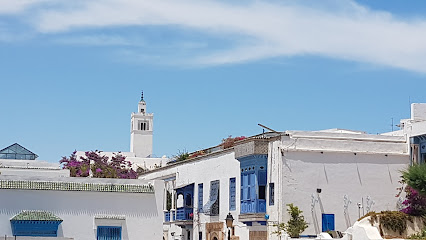
Sidi Bou Said Park
Discover tranquility and stunning views at Sidi Bou Said Park, a lush oasis in the heart of Tunisia's picturesque coastal town.
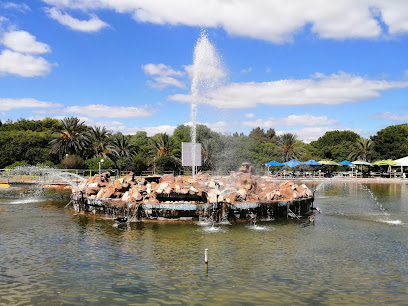
Sidi Bou Said Viewing Point
Discover stunning vistas and the charm of traditional Tunisian architecture at Sidi Bou Said Viewing Point, a must-visit destination for every traveler.
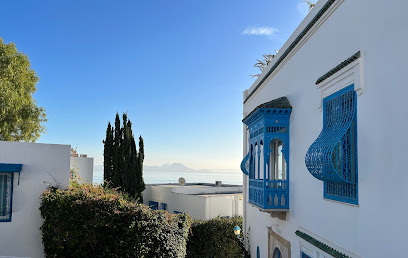
City panorama platform
Experience the stunning vistas of Carthage and the Mediterranean at the City Panorama Platform, a must-visit for history and nature lovers alike.
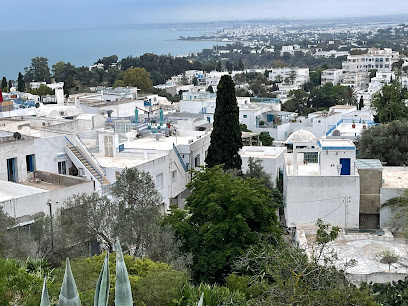
Corniche Sidi Bou Said
Explore the enchanting gardens and stunning coastal views of Corniche Sidi Bou Said, a serene treasure along Tunisia's Mediterranean coast.
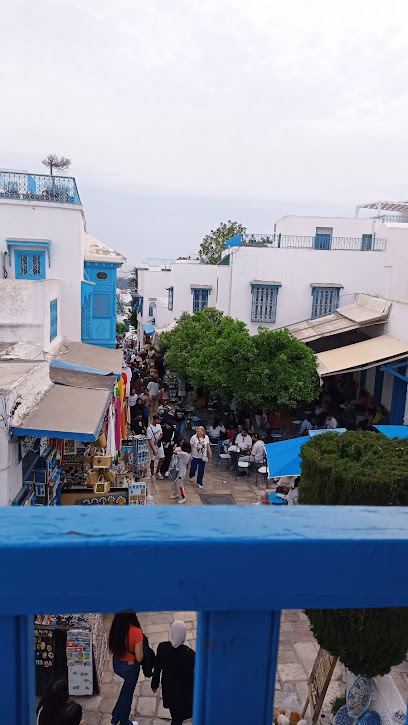
Sidi Bou Said lighthouse
Explore the stunning Sidi Bou Said Lighthouse, a picturesque landmark offering breathtaking Mediterranean views and a rich cultural experience in Tunisia.
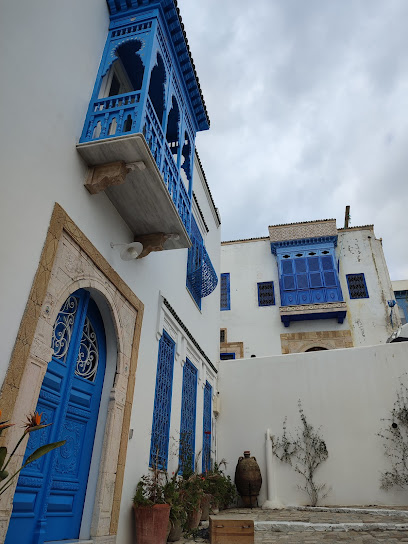
Sidi bou Saïd
Explore Sidi Bou Saïd, Tunisia's enchanting coastal gem filled with stunning views, vibrant culture, and charming blue and white architecture.
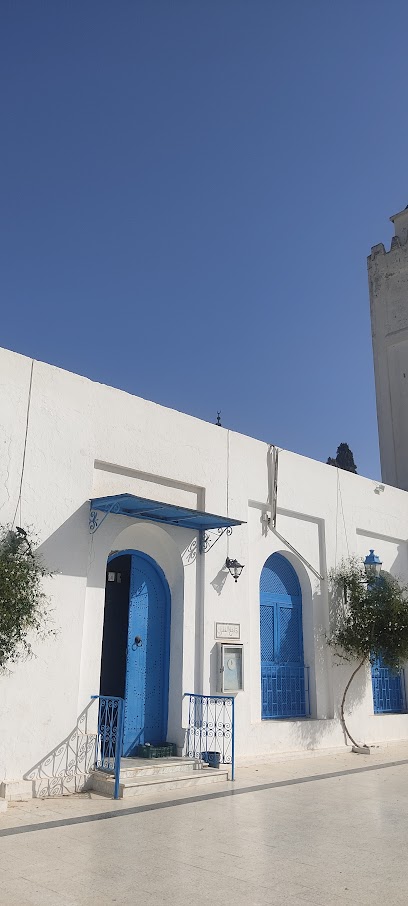
World War 2 Bunker
Discover the World War 2 Bunker in Carthage, a historical landmark that unveils the city's rich past and its role during the tumult of the Second World War.
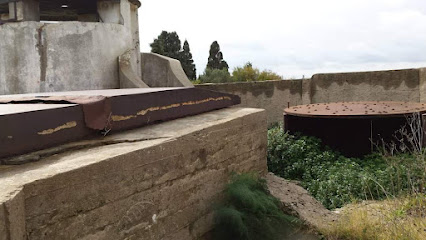
Sidi Bou Saïd Incredible View
Discover the enchanting beauty of Sidi Bou Saïd, where stunning views, vibrant culture, and historic charm come together in a picturesque coastal village.
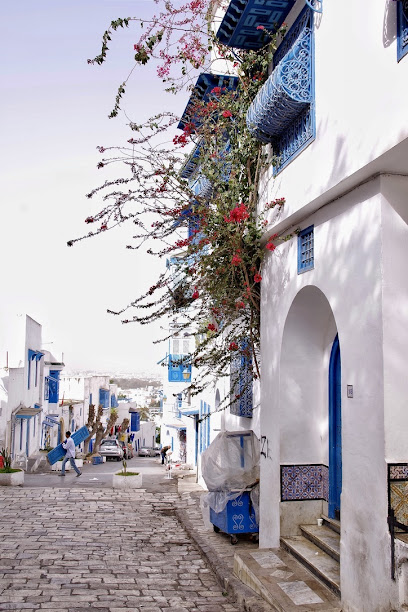
Ben Ayed’s Castle
Explore the enchanting Ben Ayed’s Castle, a historical landmark in Carthage, and uncover Tunisia's rich heritage amidst stunning Mediterranean views.
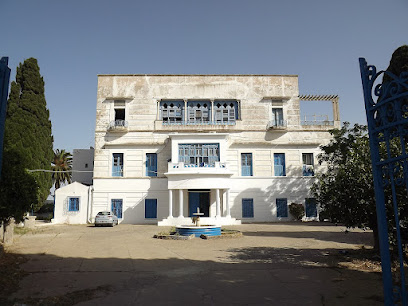
Unmissable attractions to see
Sidi Bou Said
Discover the enchanting charm of Sidi Bou Said, Tunisia's coastal gem known for its blue and white architecture and breathtaking Mediterranean views.
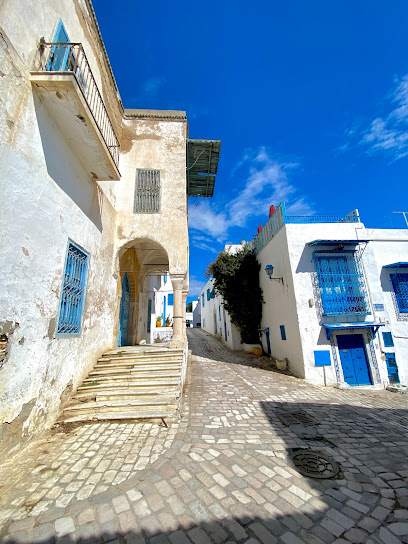
Dar El Annabi
Explore the historical beauty of Dar El Annabi, a heritage museum in Carthage showcasing traditional Tunisian culture and architecture.
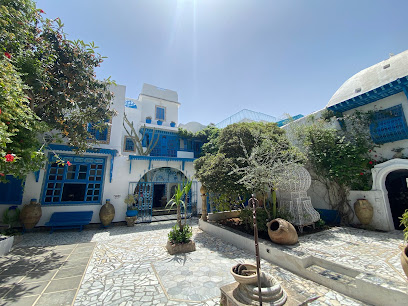
Sidi Bou Said Viewing Point
Discover the stunning vistas and cultural charm at Sidi Bou Said Viewing Point, an unmissable experience on your Tunisian adventure.
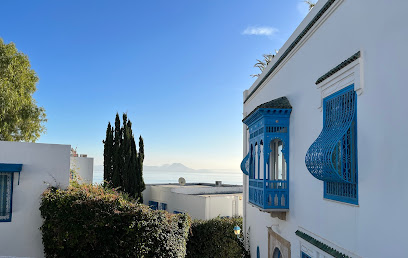
Lily Land
Experience a world of fun and adventure at Lily Land, Carthage's premier amusement park for families and thrill-seekers alike.
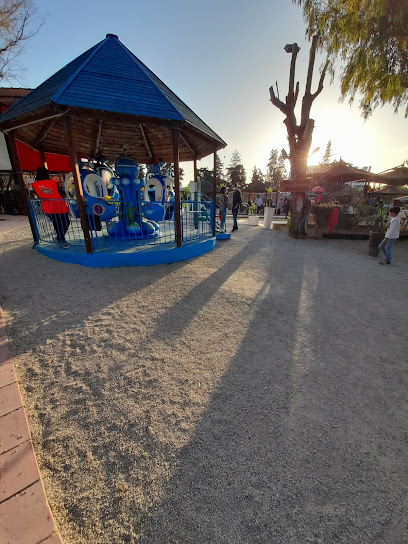
Port of Sidi Bou Said
Experience the enchanting beauty of the Port of Sidi Bou Said, a picturesque harbor blending stunning views and rich Tunisian culture.
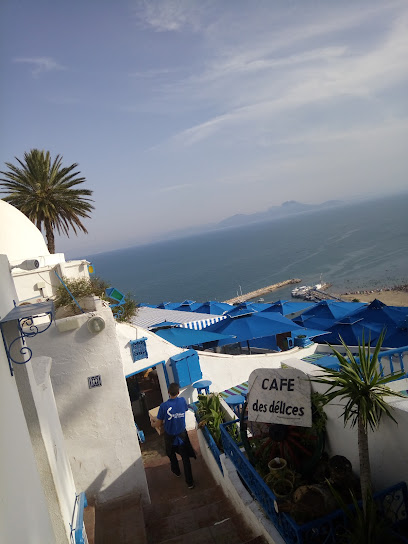
Marsa Incredible View
Discover breathtaking views at Marsa Incredible View in Carthage, Tunisia – a serene escape that blends nature, beauty, and history.
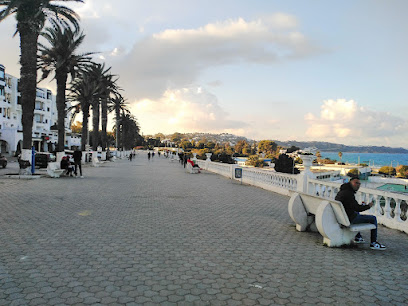
Corniche Sidi Bou Said
Experience the breathtaking beauty of Corniche Sidi Bou Said, where stunning coastal views meet vibrant local culture and rich history.
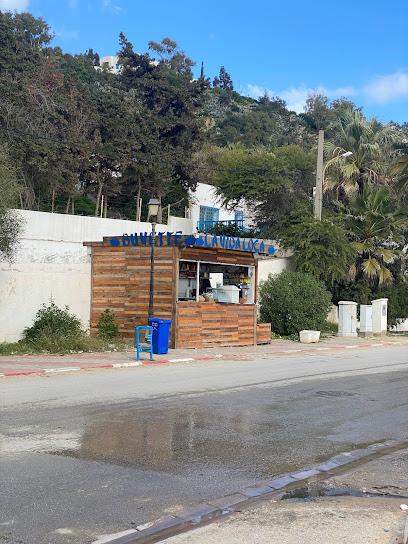
Phare de Sidi Bou Saïd
Explore the breathtaking Phare de Sidi Bou Saïd, a historic lighthouse offering stunning views and a glimpse into Tunisia's rich maritime heritage.
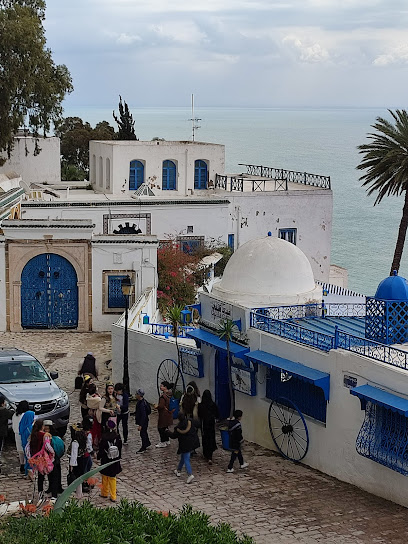
Nice View
Discover the stunning vistas of the Mediterranean at Nice View, a breathtaking attraction in Sidi Bou Said, Carthage.
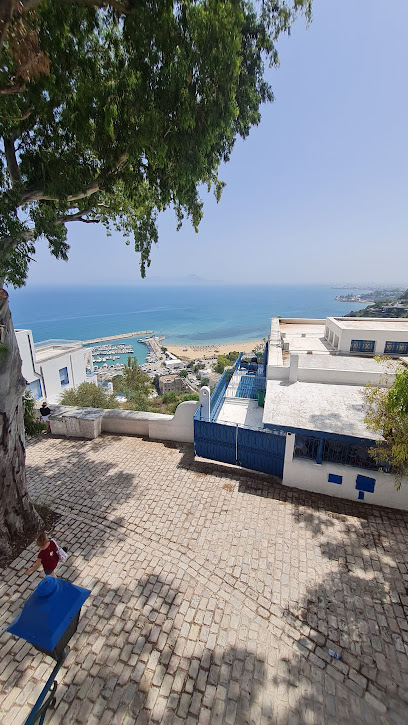
Sidi bou Saïd
Explore the enchanting village of Sidi Bou Saïd, where stunning architecture meets Mediterranean charm and rich cultural heritage awaits.
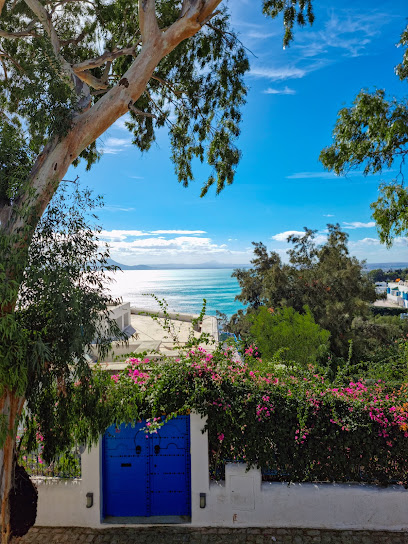
Viewing point
Experience breathtaking views and rich history at the Carthage Viewing Point, a must-see destination for travelers exploring Tunisia's ancient treasures.
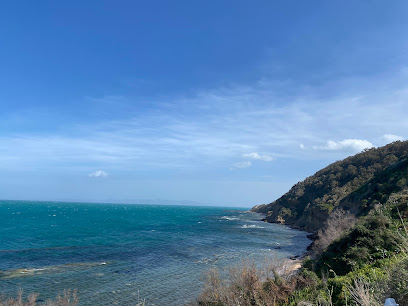
Sidi Bou Saïd Incredible View
Explore the enchanting village of Sidi Bou Saïd, where stunning Mediterranean views meet rich Tunisian culture and history.
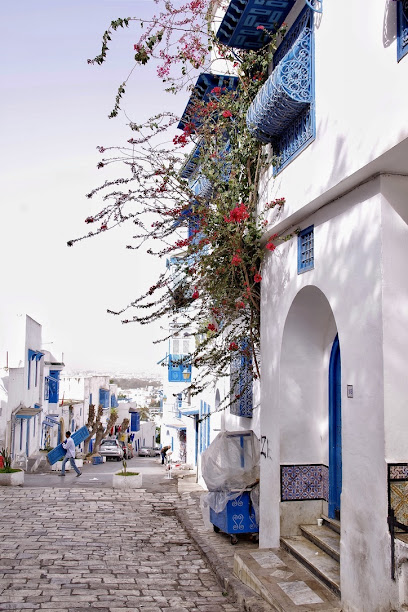
Essential places to dine
Au bon vieux temps - أيام زمان
Experience authentic Tunisian flavors at Au Bon Vieux Temps in Sidi Bou Said – where every meal is a journey through Tunisia's rich culinary heritage.
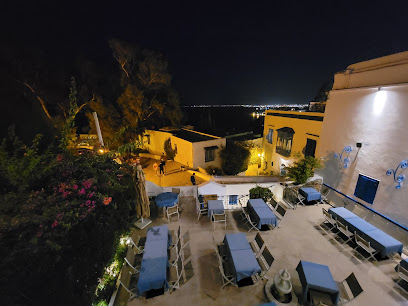
Chez Weld Moufida
Discover authentic Tunisian flavors at Chez Weld Moufida in Carthage – where culinary tradition meets breathtaking views.
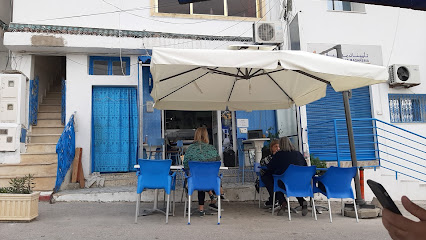
Restaurant le Pirate
Experience exquisite Tunisian cuisine with stunning views at Restaurant le Pirate in Sidi Bou Said.
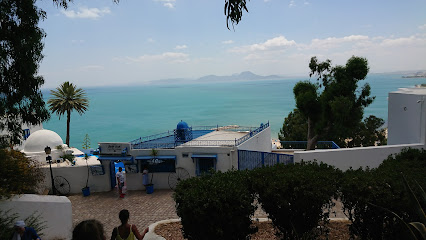
Blu Blu Sidi Bou
Experience authentic Tunisian cuisine at Blu Blu Sidi Bou in Sidi Bou Said - where flavors meet breathtaking Mediterranean views.
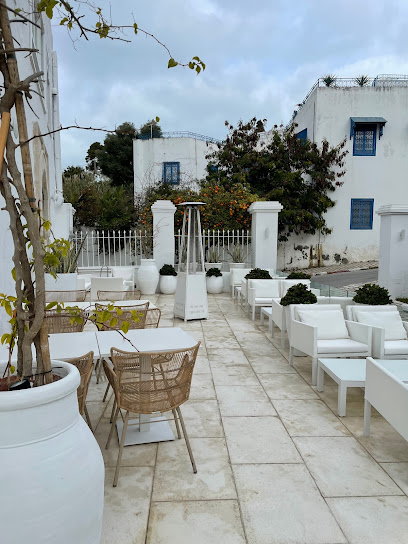
Le Chergui
Discover authentic Tunisian cuisine at Le Chergui in Carthage, where every meal is a celebration of flavor and tradition.
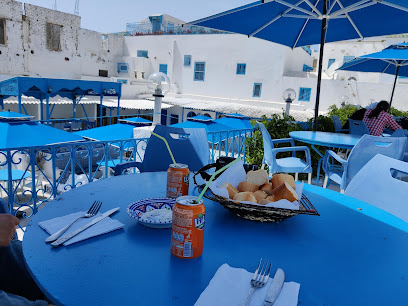
Raïs Labhar
Experience authentic Tunisian cuisine at Raïs Labhar with stunning views and fresh seafood near historical Carthage.
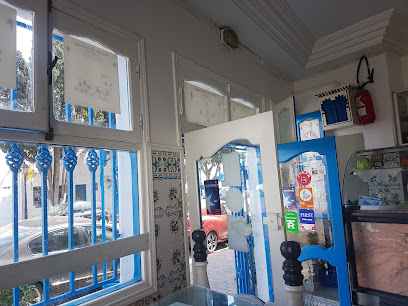
Restaurant El Bey
Discover the flavors of Tunisia at Restaurant El Bey in Carthage—perfect for families seeking delicious local cuisine in a charming setting.
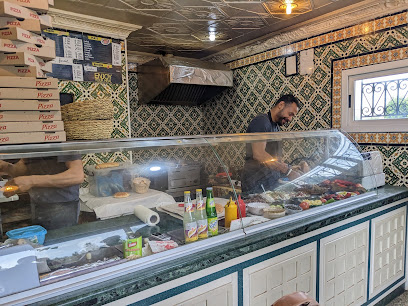
Lella Alya للّا علياء
Discover delightful brunch at Lella Alya in Carthage - where local flavors meet breathtaking views.
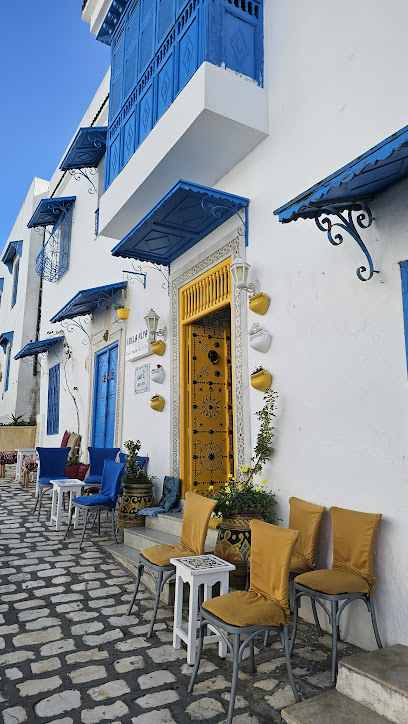
PANORAMA +
Experience exquisite Tunisian cuisine with stunning sea views at PANORAMA + in beautiful Carthage.
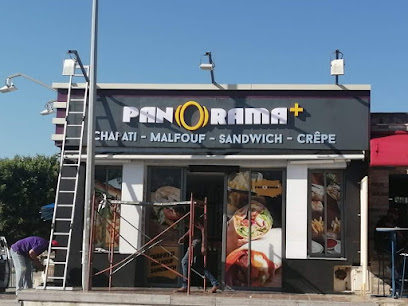
Oliveri sidi bou said
Experience exquisite Tunisian cuisine at Oliveri Sidi Bou Said, where every dish tells a story amidst stunning Mediterranean views.
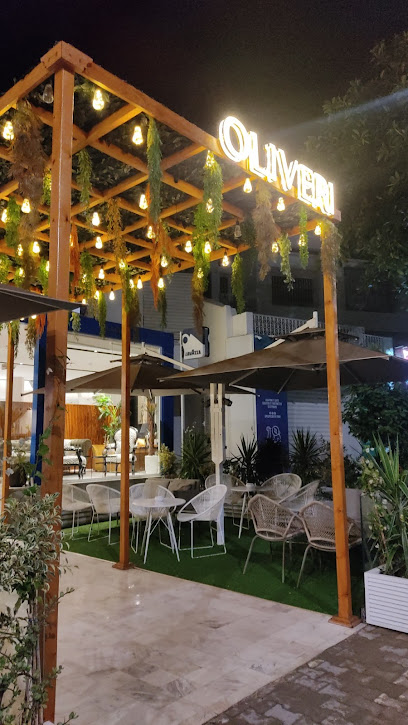
Markets, malls and hidden boutiques
La Caverne de Sidi Bou Said
Explore the enchanting La Caverne de Sidi Bou Said for unique Tunisian crafts and home goods in the picturesque coastal village of Sidi Bou Said.
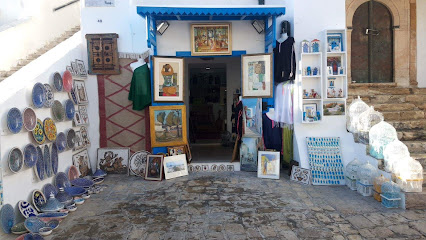
Boutique D'artisanat
Discover the essence of Tunisian craftsmanship at Boutique D'artisanat, a charming gift shop in Carthage showcasing unique artisanal treasures.
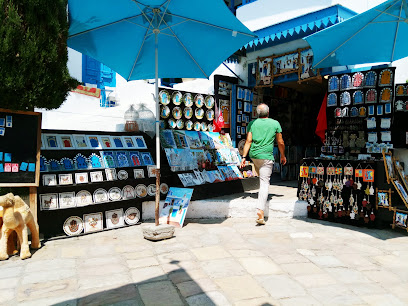
Fakharmouna_ceramiques boutique N16
Explore the vibrant world of Tunisian pottery at Fakharmouna Ceramics Boutique in historic Carthage, where every piece tells a story of artistry and tradition.
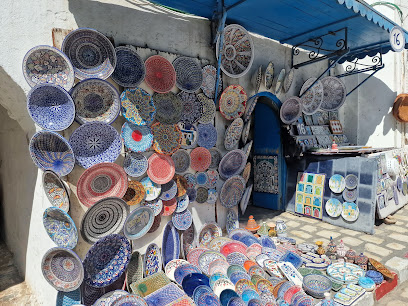
Watch Box Sidi Bou Said
Explore the charming Watch Box Sidi Bou Said, a gift shop filled with unique Tunisian treasures and local crafts that tell a story.
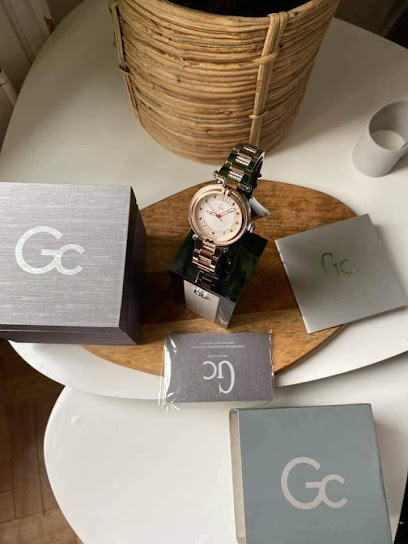
Boutique Deyma
Explore Boutique Deyma in Sidi Bou Said for unique Tunisian crafts and gifts that capture the essence of local artistry.
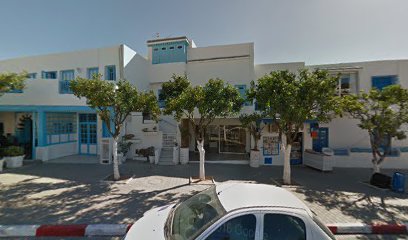
Boutique La Différence
Explore Boutique La Différence in Carthage for unique collectibles and authentic Tunisian treasures that capture the spirit of your travels.
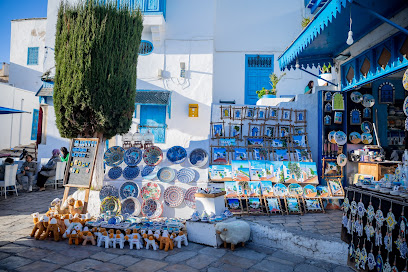
BLINGO
Discover Blingo in Carthage: A gift shop offering unique souvenirs that celebrate Tunisian culture and history, perfect for every traveler.

Vente des produits de CHICHA
Discover the essence of Tunisian culture at Vente des produits de CHICHA, a vibrant shopping mall in historic Carthage, perfect for unique souvenirs.

Gallerie belle art
Explore the Gallerie Belle Art in Carthage for authentic Tunisian gifts and a deep dive into the local artistry and culture.

Belle art
Discover the essence of Tunisian craftsmanship at Belle Art, a charming gift shop in Sidi Bou Said, showcasing art and culture.

Essential bars & hidden hideouts
Café des Délices (Café Sidi Chabaane)
Discover the enchanting Café des Délices in Sidi Bou Said, a serene spot offering stunning Mediterranean views and delicious Tunisian treats.
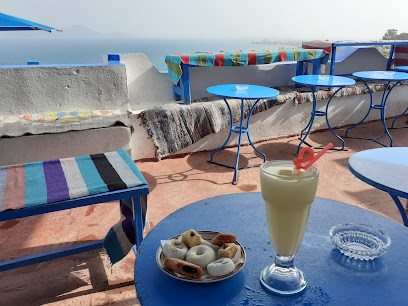
The Cliff
Experience the flavors of the Mediterranean at The Cliff, where exquisite cuisine meets breathtaking ocean views in La Marsa.
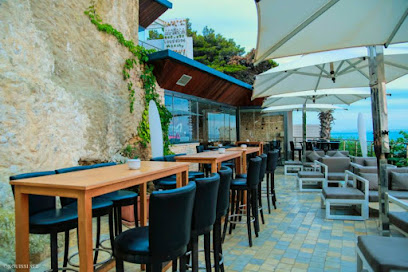
Au bon vieux temps - أيام زمان
Discover authentic Tunisian cuisine in a charming setting at Au Bon Vieux Temps in Sidi Bou Said, where tradition meets culinary excellence.
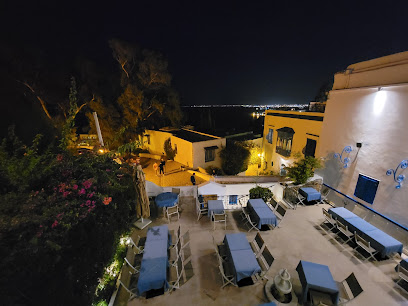
Le Saf Saf
Experience authentic Tunisian flavors at Le Saf Saf, a charming café and restaurant in the heart of Carthage.
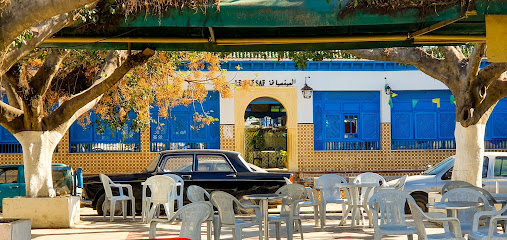
Chez Weld Moufida
Discover the authentic taste of Tunisia at Chez Weld Moufida, a culinary treasure in Carthage offering traditional dishes and breathtaking views.
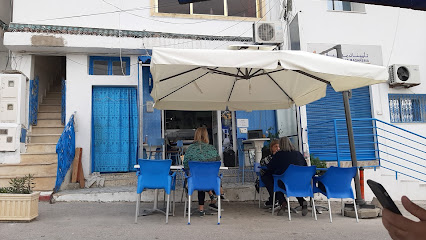
Restaurant le Pirate
Experience the best of Tunisian cuisine with stunning views at Restaurant le Pirate in Sidi Bou Said.
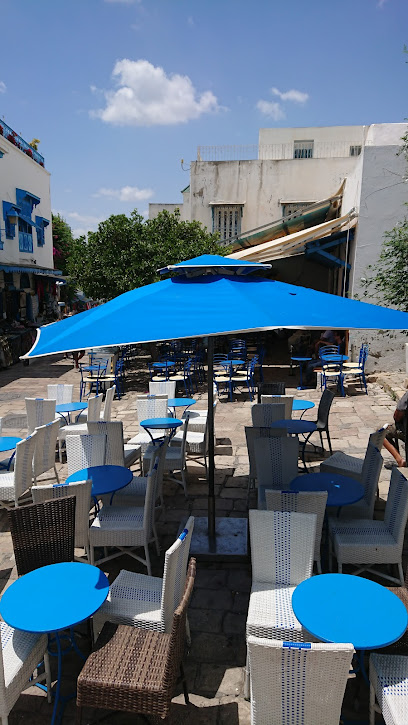
Blu Blu Sidi Bou
Experience the vibrant flavors of Tunisia at Blu Blu Sidi Bou, nestled in the picturesque Sidi Bou Said with stunning Mediterranean views.
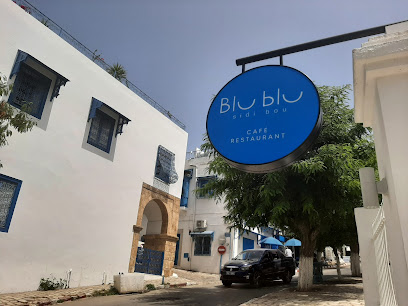
BAMBALOUNI
Experience the authentic taste of Tunisia at Bambalouni, nestled near the historic ruins of Carthage, where every dish tells a story.
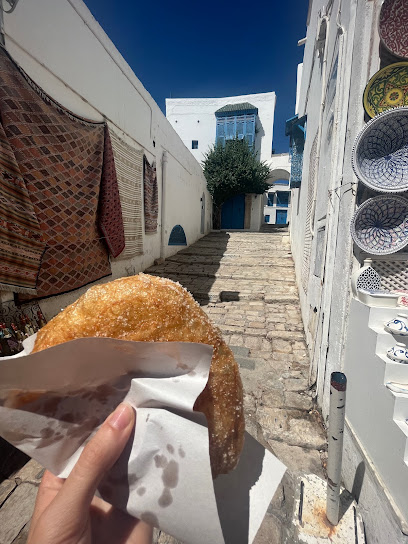
La Tournelle
Experience the rich flavors of Tunisian cuisine at La Tournelle, a charming restaurant in Sidi Bou Said with breathtaking Mediterranean views.
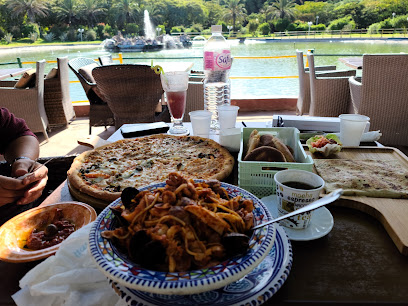
SidiBou Sky
Discover the enchanting atmosphere of Sidi Bou Sky, a vibrant bar in Sidi Bou Said, where scenic views meet local culture for an unforgettable experience.
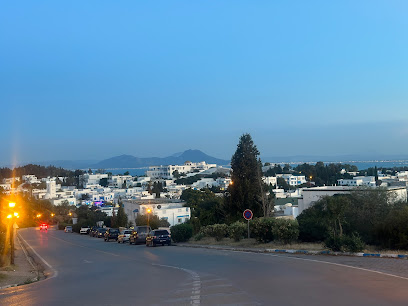
Local Phrases
-
- Helloمرحبا
[marhaban] - Goodbyeوداعا
[wadaeana] - Yesنعم
[naam] - Noلا
[la] - Please/You're welcomeمن فضلك
[min fadlik] - Thank youشكرا
[shukran] - Excuse me/Sorryعذرا
[azraan] - How are you?كيف حالك؟
[kayfa haluk?] - Fine. And you?بخير. وأنت؟
[bikhayr. wa ant?] - Do you speak English?هل تتحدث الإنجليزية؟
[hal tatahadath al'injlizia?] - I don't understandأنا لا أفهم
[ana la afham]
- Helloمرحبا
-
- I'd like to see the menu, pleaseأود أن أرى القائمة، من فضلك
[awad an ara alqa'imah, min fadlik] - I don't eat meatأنا لا آكل اللحم
[ana la aakul allahm] - Cheers!في صحتك!
[fi sahtak!] - I would like to pay, pleaseأريد أن أدفع، من فضلك
[uriid an adfae, min fadlik]
- I'd like to see the menu, pleaseأود أن أرى القائمة، من فضلك
-
- Help!النجدة!
[alnajdah!] - Go away!ارحل!
[irhal!] - Call the Police!اتصل بالشرطة!
[iatisil bialshurta!] - Call a doctor!اتصل بطبيب!
[iatisil bitabib!] - I'm lostلقد ضللت
[laqad dalalt] - I'm illأنا مريض
[ana mareed]
- Help!النجدة!
-
- I'd like to buy...أريد أن أشتري...
[uriid an ashtari...] - I'm just lookingأنا فقط أتفرج
[ana faqat atafarraj] - How much is it?كم هذا الثمن؟
[kam hatha althaman?] - That's too expensiveهذا غالي جدا
[hatha ghali jiddan] - Can you lower the price?هل يمكنك خفض السعر؟
[hal yumkinuk khafe alsiar?]
- I'd like to buy...أريد أن أشتري...
-
- What time is it?كم الساعة؟
[kam alssaeah?] - It's one o'clockالساعة الواحدة
[alssaeah alwahidah] - Half past (10)الساعة والنصف (عشرة)
[alssaeah walnisf (asherah)] - Morningالصباح
[alsabah] - Afternoonالمساء
[almasa] - Eveningالمساء
[almasa] - Yesterdayأمس
[ams] - Todayاليوم
[alyawm] - Tomorrowغدا
[ghadan] - 1واحد
[wahid] - 2اثنان
[ithnan] - 3ثلاثة
[thalatha] - 4أربعة
[arbaa] - 5خمسة
[khamsa] - 6ستة
[sitta] - 7سبعة
[sabaa] - 8ثمانية
[thamania] - 9تسعة
[tisaa] - 10عشرة
[asherah]
- What time is it?كم الساعة؟
-
- Where's a/the...?أين...؟
[ayn...?] - What's the address?ما هو العنوان؟
[ma huwa al'anaan?] - Can you show me (on the map)?هل يمكنك أن تريني (على الخريطة)؟
[hal yumkinuk an tureeni (ala alkhareetah)?] - When's the next (bus)?متى يأتي الحافلة القادمة؟
[mataa yati alhafilat alqadimah?] - A ticket (to ....)تذكرة (إلى...)
[tadhkirah (ila...)]
- Where's a/the...?أين...؟
History of Sidi Bou Said
-
Sidi Bou Said's name is derived from the 13th-century saint, Sidi Bou Said, whose mausoleum is a focal point of the town. The area has been inhabited since the Roman era, with its strategic coastal location making it an important site for trade and cultural exchange. The blend of Berber, Arab, and Mediterranean influences is evident in its architecture and community.
-
In the late 15th century, following the Reconquista in Spain, many Andalusian Muslims and Jews fled to North Africa, significantly influencing the culture of Sidi Bou Said. They brought with them their architectural styles, customs, and traditions, which can be seen in the town's whitewashed buildings with blue accents, reflecting a harmonious blend of cultures.
-
During the 1920s and 1930s, Sidi Bou Said emerged as a gathering place for artists, writers, and intellectuals. The vibrant artistic community attracted figures such as the French painter Paul Klee and the Tunisian artist Abderrazak Bouzid. This period solidified Sidi Bou Said's reputation as a cultural center in Tunisia, with its picturesque landscapes serving as inspiration for countless works of art.
-
Under French colonial rule in the late 19th and early 20th centuries, Sidi Bou Said underwent significant changes. The French authorities developed the area as a residential and tourist destination for expatriates, which influenced the architectural style and urban planning. This period saw the construction of new villas and public spaces, enhancing the town's appeal.
-
After Tunisia gained independence in 1956, there was a renewed interest in preserving the cultural heritage of Sidi Bou Said. The government implemented laws to protect the architectural integrity of the town, ensuring that its unique charm and historical significance would be maintained. Today, Sidi Bou Said is recognized for its cultural richness and is a popular destination for both locals and tourists.
Sidi Bou Said Essentials
-
Sidi Bou Said is located approximately 20 kilometers from the center of Tunis. The easiest way to reach Sidi Bou Said is by taking the TGM (Tunis-Goulette-Marsa) train from the Tunis central train station. The journey takes about 30 minutes, and trains run frequently. Alternatively, you can take a taxi, which is a convenient option for door-to-door service.
-
Sidi Bou Said is a compact neighborhood that is best explored on foot. The charming streets are narrow and lined with whitewashed buildings adorned with blue doors and windows. For longer distances, taxis are available, and the TGM train can also be used to travel to nearby areas. Bicycles can be rented from local shops for a leisurely way to explore the coastline.
-
Sidi Bou Said is generally a safe area for tourists. However, it's wise to take standard safety precautions. Avoid walking alone at night in less populated areas and keep your belongings secure in crowded places. Petty theft can occur, especially in tourist-heavy spots, so remain vigilant. Areas around the main tourist sites are usually safe, but it's best to avoid secluded areas after dark.
-
In case of emergency, dial 19 for police assistance or 190 for medical emergencies. The local hospital and clinics are available in the area. It is highly recommended to have travel insurance that covers medical emergencies. For minor health issues, pharmacies are available throughout Sidi Bou Said for over-the-counter medications.
-
Fashion: Do dress modestly, especially when visiting religious sites. Avoid wearing revealing clothing. Religion: Do respect local customs and traditions. It’s advisable to cover your shoulders and knees when visiting mosques. Public Transport: Do be courteous and offer your seat to elderly passengers. Don’t eat or drink on public transport. Greetings: Do greet people with a handshake, and use 'Salam Alaikum' as a polite way to say hello. Eating & Drinking: Do try local pastries and enjoy a mint tea at a café. Don’t refuse food or drink offered to you, as it’s considered impolite.
-
To experience Sidi Bou Said like a local, visit the markets for fresh produce and traditional Tunisian goods. Engage with local artisans, especially those selling handmade crafts. Don’t miss the local cafes where you can enjoy a traditional Tunisian breakfast. For stunning views, walk up to the top of the cliff where you’ll find the picturesque lighthouse. Be sure to take a moment to enjoy the sunset over the Mediterranean, a favorite pastime for locals.
Nearby Cities to Sidi Bou Said
-
Things To Do in Hammamet
-
Things To Do in Bizerte
-
Things To Do in Sousse
-
Things To Do in Monastir
-
Things To Do in Annaba
-
Things To Do in Sfax
-
Things To Do in Palermo
-
Things To Do in Constantine
-
Things To Do in Djerba
-
Things To Do in Xlendi
-
Things To Do in Marsalforn
-
Things To Do in Gozo
-
Things To Do in Xaghra
-
Things To Do in Xewkija
-
Things To Do in Mellieha










